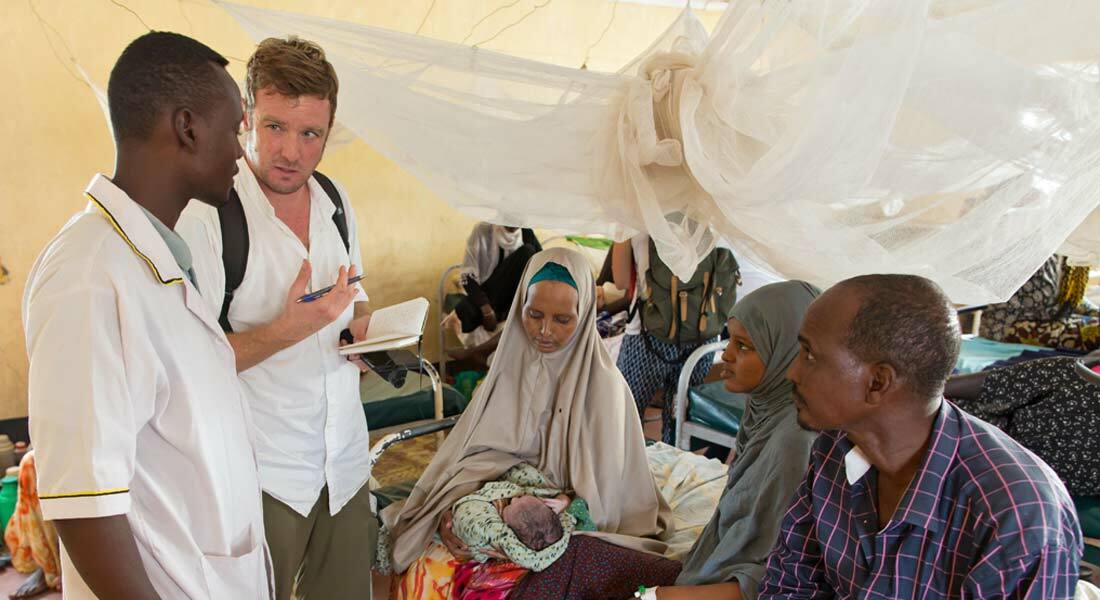Sign up to receive our latest COPE stories, events and news about education, research and opportunities.
Health in Emergencies and Refugee Health
This course is a part of

The course offers an overview of issues involved in providing health interventions in emergency settings.
This includes; the epidemiology of excess mortality and morbidity, and the agreed guidelines and the role definitions among local, national and international actors. Both conventional wisdom and divergent views will be presented.
The course consists of 4 weeks of part-time online learning followed by 2 weeks of full-time, face-to-face studies at University of Copenhagen, Denmark.
Course content
The course addresses the following aspects related to disaster- and conflict related emergencies:
-
Context analysis, e.g. fragile settings, different types of emergencies, health resilience and risk reduction.
-
Legal and ethical frameworks, e.g. human rights, international humanitarian law, refugee convention, guidelines on internally displaced persons, codes of conduct.
-
Operational aspects of humanitarian response interventions, e.g. needs assessments, health systems, control of communicable diseases including outbreaks, communications, mental health, reproductive health, violence and injuries, approaches to non-communicable disease, environmental health/water and sanitation, nutrition.
-
Coordination and roles in emergencies, e.g. ongoing humanitarian reform process, role of national governmental and non governmental actors.
For more details about the course, please refer to the course curriculum.
View all courses on:
Course director on »Health in Emergencies and Refugee Health«

Kristoffer Vogler
Part time lecturer
Course information about »Health in Emergencies and Refugee Health«
Dates and examination
Course dates
This course will be postponed until further notice.
Learning outcomes
On completion of the course, you will be able to:
-
demonstrate knowledge on health issues in different settings and accepted approaches/guidelines to deal with them
-
analyze and apply this knowledge to a variety of settings, adjusting to time and resources available
-
design and develop appropriate public health management strategies for humanitarian response, including planning, coordination, monitoring and evaluation.
Admission criteria
This course on Health in Emergencies is aimed for humanitarian professionals working, or aiming to work, with national or international emergency management agencies, relief organizations, national governments or the UN system.
You must meet the following criteria to be admitted to the course:
- Hold a relevant bachelor degree or equivalent.
- Have a minimum 2 years of relevant job experience.
- Be proficient in English.
Find detailed information in the admission criteria on Master of Disaster Management.
Priority is given to enrolled students
This course is offered as an elective course in the Master of Disaster Management programme. Priority is given to students already enrolled. Once the enrolled students have been admitted to the course, the remaining seats are distributed on a first-come, first-served basis.
Tuition fees
EU/EEA citizens
Master student: 13,500 DKK
Single course student: 15,000 DKK
Non-EU/EEA citizens
Master student: 19,250 DKK
Single course student: 20,000 DKK
More information
All course information is available in the course curriculum:Place
University of Copenhagen
City Campus
Øster Farimagsgade 5
1353 Copenhagen
Denmark
Contact
Christine Gulstad
Study Administration Officer
lifelonglearning@adm.ku.dk>
Tel: +45 35 32 12 73
